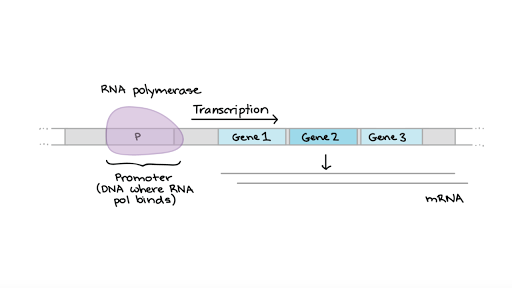Definition Of Negative Gene Control

Turning off of the structural gene expression by a repressor protein is known as negative regulation.
Definition of negative gene control. Hence negative gene regulation is a process in which genes are prevented from expressing and producing proteins. Negative control of gene expression transcription factor binding to dna that results in decreased rates of transcription. The respective gene can be expressed to make the protein only when the repressor is absent. The type of control is defined by the response of the operon when no regulatory protein is present.
Binding of the repressor proteins into the promoter region of the gene inhibits the gene by blocking the rna polymerase at the beginning. Negative gene control neg əd iv jēn kən trōl cell and molecular biology prevention of gene expression by the binding of specific repressor molecules to operator sites. Positive or negative by induction or repression. A specimen or sample known to lack a particular substance which is used as a standard for measuring a tested substance s effect.
In an inducible system the repressor protein alone binds to the operator and inhibits transcription in the absence of an inducer. Thus the operon will be turned on constitutively the genes will be expressed when the repressor in inactivated. Key is that the occurrence of transcription is negatively affected. In the negative regulation the operons express the genes until a repressor protein switches it off.
This type of gene regulation is also called repressible regulation. In the case of negative control the genes in the operon are expressed unless they are switched off by a repressor protein. However in the presence of an inducer the repressor protein binds to it and undergoes a conformational change.